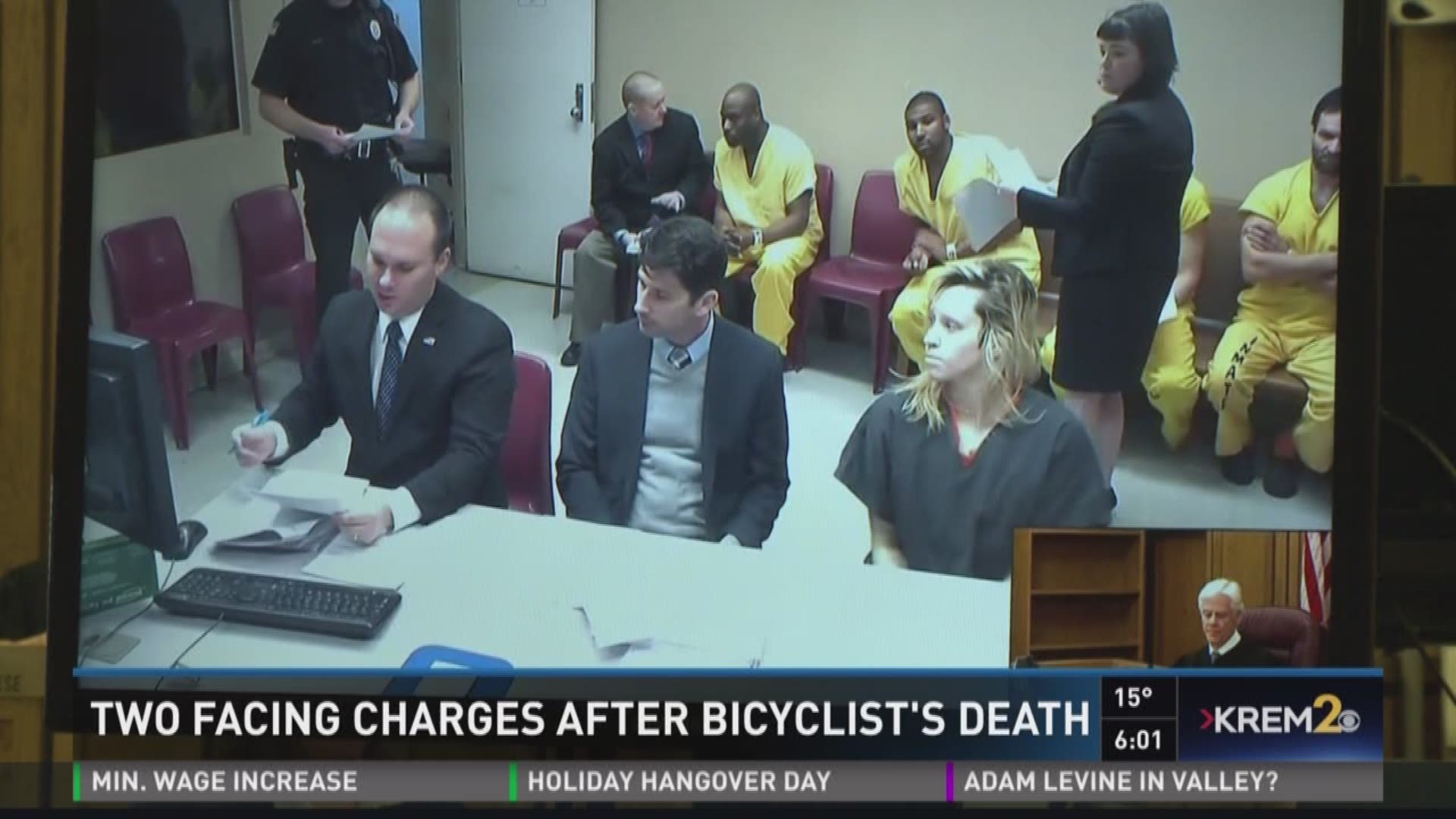Editor's Note: The above video is from Melissa Paul's first court appearance on charges of vehicular homicide on January 3, 2017.
SPOKANE, Wash. -- A woman who was once accused of killing a bicyclist in a drunk driving crash is suing the Washington State Patrol, two troopers and a sergeant.
On Jan. 1, 2017, Melissa Paul was arrested for vehicular homicide. WSP said she struck and killed bicyclist, Ty Olds, on Highway 2 near Flint about a mile east of Airway Heights while intoxicated.
According to Paul’s lawsuit filed on Feb. 28, 2019, the charges were thrown out after two Superior Court judges agreed there was no evidence to support that she was under the influence. The lawsuit claims troopers lied on a warrant to get a sample of Paul’s blood. Paul spent three months in jail because of the “false and misleading affidavit,” according to the lawsuit.
The lawsuit claims it was dark and snowing when Paul struck Olds, who was riding or walking his bike on Highway 2. Olds was wearing dark blue jeans and a dark jacket, according to the lawsuit. Paul claims she did not see Olds when she hit him.
According to the lawsuit, a forensic toxicology report said Olds had a “extremely high” level of meth in his system.
At 4:40 a.m., about 35 minutes after the crash, WSP trooper Joe Leibrecht arrived on scene and contacted Paul. The lawsuit said Leibrecht said he thought he might have smelled alcohol in the car but was “not sure where it was coming from.”
The passenger in Paul’s car, Stephan Goodwin, told the trooper that he had been drinking and that Paul was his designated driver, the lawsuit said.
According to the lawsuit, Paul agreed to take a field sobriety test. Trooper Leibrecht reported, “I do not see impairment” and “No obvious signs of impairment was [sic] observed."
The lawsuit said the entire encounter was captured on dash cam video. At 5:03 a.m., the lawsuit said two troopers were heard on video discussing impairment.
“One says that he does not see any impairment, that he thought he smelled alcohol, but does not think it was Plaintiff. The troopers decided that based on the lack of impairment, that a Portable Breath Test would not be administered,” the lawsuit states.
Trooper Robert Spencer got into the patrol car with Paul to see if he could smell alcohol and did not, the lawsuit said.
At 6 a.m. Sergeant Scott Davis arrived on scene and ordered Spencer to do another field sobriety test with Paul, according to the lawsuit. The lawsuit said on dash cam video, troopers were heard saying, “She nailed the walk and turn,” “I don’t know how I’m going to get a warrant,” and “I don’t know how we will get probable cause.”
The lawsuit states Spencer gave Paul a breathalyzer test and she blew a .067, which is under the legal limit.
Davis then instructed Spencer to apply for a blood warrant to take Paul’s blood, the lawsuit said. The warrant was signed by Spokane County Superior Court Judge Annette Plese.
The lawsuit claims the warrant falsely states that Paul made errors during the field sobriety test. Paul’s lawyers claim the dash cam video proves Paul made no mistakes.
The warrant also said Spencer could smell alcohol, but the lawsuit again claims that dash cam video disproves this allegation.
The lawsuit claims Leibrecht, Spencer and Davis knowingly swore to a “factually false and/or misleading affidavit of probable cause to obtain a blood warrant.”
Paul was then charged with vehicular homicide and was given a $150,000 bond, the lawsuit claims.
According to court documents from January 3, 2017, Paul was also charged with possession of a controlled substance.
During the intake process, officials found a white oval pill inside Paul’s wallet, documents said. Authorities said it was identified as Tramadol, a controlled substance that by law has to be kept in a pill bottle with a prescription attached.
It is unclear what exactly came of the controlled substance charge.
The lawsuit claims the men violated Paul’s fourth amendment rights and caused her to suffer the “loss of enjoyment of life, pain, mental anguish, mental injury and suffering.” It does not list a specific dollar amount she is seeking.
Assistant Attorney General Frieda Zimmerman, who is representing WSP and the other defendants, responded to the lawsuit on April 24. The defendants denied the allegations, filed a counterclaim and asked that the case be heard by a jury.

